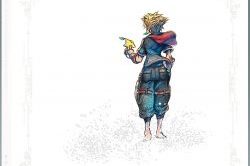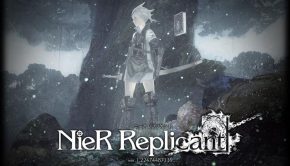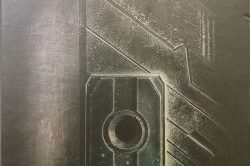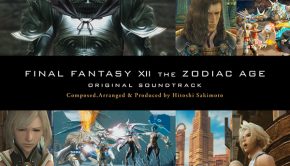Koichi Sugiyama Profile
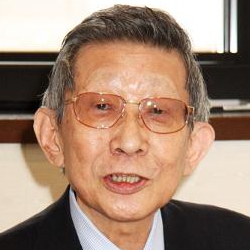 |
Also Known As: 椙山浩一 (すぎやま こういち) / Kohichi Sugiyama / Kouchi Sugiyama |
| Date of Birth: April 11, 1931 (Tokyo) |
|
| Residence: Tokyo |
|
| Game Works: Dragon Quest, Shiren the Wanderer, E.V.O. |
|
| Official Site: Japanese Site |
History
| Organisation | Type | Tenure | Role |
| Nippon Cultural Broadcasting | Broadcasting | 1954 – 1958 | Assistant |
| Fuji Television | Broadcasting | 1958 – 1965 | Planner, Director, Composer |
| Freelance | N/A | 1968 – | Composer, Arranger, Conductor |
| SUGI Label | Record Label | 2004 – | Founder, President, Artist |
Biography
Koichi Sugiyama is a classically-trained soundtrack composer, pop producer, and former broadcaster who has gained tremendous popularity in Japan, in part through the success of his music for the Dragon Quest series. Born on April 11, 1931 in Taito, Tokyo, Sugiyama developed a passion for classical music at an early age through his parents. In addition to learning to perform music, he composed a collection of short pieces during middle school. Growing up in Japan during World War II, Sugiyama was evacuated from Tokyo, but continued to pursue music by participating in orchestras, jazz bands, and ballets. He premiered the full-length children’s ballet Mr. Lost Caterpillar at the age of twenty. Though he initially wanted to attend music college, the artist eventually studied Educational Psychology at the University of Tokyo. Upon graduating in 1954, he decided to pursue a career in broadcasting rather than music. Sugiyama was initially employed at Nippon Cultural Broadcasting, where he worked in their news department for a year, before transferring to their entertainment sector. Through such roles, a young Sugiyama learned much about the television industry and several connections that were essential for his future career.
In 1958, Sugiyama joined Fuji Television as a director. During the subsequent years, he planned and directed some of the network’s biggest shows, including the comedy series Adult Cartoons, the music show Morinaga Spark Show, and the variety special New Year’s Parlor Tricks Tournament. However, his biggest achievement was as the director of The Hit Parade, an influential live music show that ran for eleven years. The program led to the rise of the talent agency Watanabe Productions in Japan and helped to expose Beatles-inspired rock groups from the era such as the Tigers, the Ventures, and the Spiders to millions. Coinciding with his work on the show, Sugiyama himself served as a producer for arguably the biggest of these bands, the Tigers; not hesitant to reflect his opinion and enforce his authority, he personally rebranded the band from the Funnies to the Tigers, replacing the lead singer with Kenji Sawada, and also wrote several of their early singles. The rise of such bands through The Hit Parade was eventually dramatised in 2006, with Taizo Harade portraying Sugiyama. The artist also occasionally lent his expertise as a composer within Fuji Television, writing theme songs for shows including The Hit Parade.
After quitting Fuji Television and working for three years as a freelance director, Sugiyama decided to focus on his primary love, composition, in 1968. He continued to produce music for a range of artists during the Group Sounds era. He penned songs such as “Flower Necklace” and “Romance of the Galaxy” during the golden age of the Tigers. His other hits included “The Girl with the Flaxen Hair” for the Village Singers, “Fugue of Lover” for the Peanuts, and “Someday Someone” by the Jaguars. Along with close associates such as Katsuhisa Hattori, Hiroshi Miyagawa, and Atsushi Hashimoto, he was revered as one of the biggest’s pop producers in the Showa era. The artist also emerged as one of the most prolific writers for advertisements, having written over two thousand songs for brands as iconic as Coca-Coca, Kirin Brewery, and Hisamitsu Pharmaceutical. He also fulfilled special requests to compose horse racing fanfares for the Japan Racing Association, including those for the Tokyo and Nakayama race courses. Also retaining a reputation as a classical artist, he was commissioned to write “Dances for Strings I & II” on behalf of the NHK Symphony Orchestra.
Given his talent for pop song writing, it is unsurprising that Koichi Sugiyama was asked to write theme songs for several animes. Debuting with 1968’s Skyers 5, he went on to capture the tone of Kumkum, The Return for Ultraman, and Machine Hayabusa during the 1970s. In a turning point for his career, he went on to successfully combine his talents as an orchestral composer and pop songwriter on the first movie adaptation of the superhero series Science Ninja Team Gatchaman in 1978, and subsequently recorded the soundtrack for the original anime adaptation of Cyborg 009 with the NHK Symphony Orchestra; reflecting his multifaceted background, the soundtrack combined the maturity and finesse of classical music with the rich, emotional melodies inspired by his pop music experiences. Following these projects, Sugiyama took a central role in 1980’s Space Runaway Ideon television series and film spinoffs, mixing orchestral and contemporary styles. Other projects that involved him include Sea Prince and the Fire Child, The Yearling, and the Daicon shorts. Between such projects, Sugiyama also continued to have roles in a wide range of pop, advertising, and other productions.
Continuing to keep up with the times, Sugiyama made his transition to becoming a video game composer in 1985 and largely left behind his roles in the pop and animation industries. Having become an avid video game player, the composer sent a handwritten postcard to Enix after playing Kazuro Morita’s Shogi for an early PC. The developers were shocked to be contacted by a celebrity of Sugiyama’s stature and were also impressed by his depth of knowledge and appreciation of games. As a result, they invited Sugiyama to write music for a sequel they were developing, Wingman 2. While the soundtrack was far less elaborate than his anime works, Sugiyama still charmed listeners by offering laid-back stylings and strong melodies. Like all his game roles thereafter, the artist was not involved in the implementation or programming of the music, but nevertheless streamlined his composition process so that the tracks could accommodate the system’s specifications. Sugiyama found the project sufficiently rewarding that he agreed to score the company’s next project, the first iconic Japanese RPG…
1986’s Dragon Quest was a smash hit in Japan. The game featured around ten minutes of classically-styled music filled with memorable melodies and emotional progressions. Given his background in cinematic composing, Sugiyama knew exactly how to complemented and sometimes transcended the game’s visuals and script. He introduced the soundtrack with “Overture”, a grandiose fanfare-like composition that has featured in every Dragon Quest release since. The game also featured a sweepingly thematic overworld theme, a Baroque-influenced castle piece, a tonally ambiguous dungeon theme, wildly dissonant battle tracks, and an unforgettable ending theme. The soundtrack established the “eight melodies” template for RPG scoring, serving as a prototype for artists such as Nobuo Uematsu. In response to the game’s success, Sugiyama packaged a 25 minute symphonic suite and an original sound medley based on the score into an album release; the suite stayed true to the original pieces while enhancing them with thicker orchestrations and rich performances from the Tokyo Strings Ensemble. At a time when game albums were rarely released, it was unprecedented to produce an orchestral recording.
Despite his work on Dragon Quest productions, Sugiyama continued to participate in wider roles. He reflected his eclecticity on the soundtracks to Jesus: The Fearful Bio-Monster and its sequel; in contrast to the classically-oriented Dragon Quest soundtrack, these soundtracks were filled with rock-influenced power ballads, sentimental love themes, and energetic action themes. By contrast, he took darker, minimalistic approaches to Angelus: The Devil’s Gospel and Gandhara. His other early game scores include Star Command, Jiro Akagawa’s Ghost Train, Tetris 2 + Bombliss, and several sequels to the Wingman and World Golf franchises. None of these titles sold as well as Dragon Quest, but they were still commemorated in several album releases. While Sugiyama focused almost all of his time on game-related productions, he was nevertheless asked to compose the feature film Godzilla vs. Biollante in 1989. Here, he produced a collection of original music, including a critically acclaimed main theme, while carefully interweaving familiar themes from Akira Ifukube’s earlier soundtracks to the series. The artist drew influence, in particular, from Ostinato, a collection of updated film themes.
Following the success of Dragon Quest, Sugiyama returned alongside Yujii Horii and artist Akira Toriyama on the series’ subsequent numbered titles. He ensured each soundtrack for the series’ four NES instalments was more extensive and exuberant than the next, building on the original foundations while taking novel approaches. The artist arranged and conducted new suites for each instalment: taking a more pop-flavoured approach for Dragon Quest II, recording with the NHK Symphony Orchestra on Dragon Quest III, and, in a pinnacle of the series’ achievement, conducting the London Philharmonic Orchestra for the fourth instalment. Inspired by the critical and commercial success of the Dragon Quest albums, Sugiyama brought the series to live venues. The first ever game music concert, Dragon Quest Family Classic Concert, was held on August 20, 1987 at Suntory Hall, Tokyo; it bridged game music with classical performances by combining performances of the first two Symphonic Suites with a famous Saint-Saëns suite. Sugiyama went on to produce annual follow-ups, each time to sold-out audiences. He also oversaw the adaptation of his music in the anime Dragon Quest: Dai’s Great Adventure.
In the early 1990s, Sugiyama took a central role on game music developments in Japan. He continued to produce his own game scores, exploring more elaborate approaches on the Super Nintendo’s Dragon Quest V, Torneko’s Adventure, and E.V.O.: The Search for Eden. He also wrote light soundtracks to Tomy’s Monopoly and Square’s Hanjuku Hero, both filled with lively melodies and pizzicato strings. Sugiyama was a central organiser of the Orchestral Game Concerts, an unprecedented five concert series that occurred between 1991 and 1995; the concerts featured symphonic performances of a wide range of iconic titles, including the Dragon Quest series. The artist also produced the album release Super Mario World, a definitive compilation of jazz arrangements, original music, and sound effects from the first four Super Mario titles. He balanced such responsibilities with advisory roles on productions by his protegés, namely Hayato Matsuo’s Master of Monsters, Kyohei Tsutsumi’s Itadaki Street 2, and Motoaki Takenouchi’s arranged album for E.V.O. He even lent his advice to Nobuo Uematsu on several Final Fantasy scores. In the field of anime, he also directed and conducted Matsuo’s scores for Magic Knight Rayearth.
Two of Koichi Sugiyama’s defining soundtracks were released in 1995. Shiren the Wanderer combined the strong, richly shaped melodies typical of the artist’s work with the tonalities and instruments of feudal Japan. Dragon Quest VI’s soundtrack and suite boasted greater thematic continuity and lavish stylings than other entries in the series. Having long-admired Russian ballets, Sugiyama also produced a Dragon Quest Ballet that year, combining renditions of the series’ suites with performances from the Star Dancers Ballet. The performances of this ballet have attracted over 20,000 people and have received glowing reviews. Having turned 65, Sugiyama largely retired from soundtrack production thereafter. However, he couldn’t resist expanding the fanbase of the Dragon Quest series with new albums and concerts throughout the 1990s. At the turn of the century, Sugiyama went on to write the soundtracks for Dragon Quest VII, Torneko’s Great Adventure 2, and Shiren the Wanderer 2. Benefiting from the technical specifications of the PlayStation and Nintendo 64, these scores were significantly longer than his previous efforts and utilised more convincing orchestral samples.
In 2004, Sugiyama was propelled back to the spotlight with the release of Dragon Quest VIII and Dragon Quest V’s PlayStation 2 remake. The artist was finally able to fulfil his dream of producing fully orchestral game scores, since these titles streamed recordings from their symphonic suites. These suites marked the composer’s first recordings with the Tokyo Metropolitan Symphony Orchestra. In the years thereafter, he went on to re-record all of the series’ previous suites with the orchestra; such performances have been noted for their crystal clear recording quality, the virtuosity of their concertmaster Tomoshige Yamamoto, and the finesse of the brass section. The artist also led the orchestra in regular concert performances. He also produced adaptations of the series’ music with the Tokyo Metropolitan’s string quartet, brass quintet, and wind ensemble, which have been released on album and performed at concert. Sugiyama released all these albums under the SUGI Label, a personal label he established in 2004 with support from Sony Music Entertainment. Through the label, Sugiyama also revisited his earlier career with special albums: an orchestral album covering his most iconic pop songs, a brass quintet album featuring his horse-racing fanfares, and a string quartet album dedicated to one of his greatest influences, The Beatles.
Over the years, Sugiyama has cultivated the discography of the Dragon Quest series. While the original scores for games usually feature between 15 and 30 tracks, the vast popularity of the series’ music has allowed for a wide range of albums to be financially sustainable. Each of the classic symphonic suites for the series have been recorded several times by the NHK Symphonic Orchestra (1988 – 1992), London Philharmonic Orchestra (1991 – 2000), and the Tokyo Metropolitan Symphony Orchestra (2004 – 2012). Under his baton, the perfectionistic artist refined the arrangement, performance, and recording quality in each rendition of the suite. The suites have also been reprinted on two occasions, in 2000 and 2009, and have also been compiled into two box sets. In addition to symphonic suites, Sugiyama has supervised the production of numerous albums and sheet music books dedicated to arrangements for electone and solo piano, most of them beginner-friendly adaptations of the original scores. Vocal singles, drama albums, chamber recordings, and compilations have also been released for the series. The enormity of the series’ discography is an incredible symbol of the its immense popularity and influence in Japan.
Sugiyama is active in a range of other positions. He serves as a director of the artist collective Japan Composers & Arrangers Association (JCAA), the copyright society Japanese Society for Rights of Authors, Composers and Publishers (JASRAC), and the Japan Composers Conference. Through such organisations, he has significantly influenced corporate policies related to music production and copyright. He is a fervent supporter of strengthening copyright law and has taken action against Internet piracy. Despite receiving widespread acclaim as a musician, Sugiyama has attracted much controversy within Japan and overseas for his political affiliations. The composer serves as a council member of a nationalist conservative thinktank, the Japan Institute for National Fundamentals, and has made numerous comments on Japan’s domestic, foreign, and electoral issues. He is also a leading member of the Committee for Historical Facts, a historical revisionist groups that denies many of Japan’s war atrocities; in response to a US resolution to ask the Japanese government to apologise to former comfort women, Sugiyama personally funded the society’s high-profile advertisement “The Facts” that appeared in the Washington Post in 2007.
Now 82, Koichi Sugiyama is still going strong and remains dedicated to the legacy of Dragon Quest. He continues to write scores for the series’ numbered instalments, between supervising numerous remakes and spinoffs. The series’ latest instalments, the DS’ Dragon Quest IX and Wii’s Dragon Quest X, were both retrospective affairs that further retained the series’ classically-influenced style and signature themes. As Sugiyama said himself, ’despite the constant advances in sound and computer technology, people’s tastes don’t change’. Sugiyama also conducts several Dragon Quest concerts in Japan every year, including the annual Family Classic Concerts, and regularly releases new suite recordings and arranged albums for the series through SUGIlabel. He also recently released new recordings of three of his oldest classical works with the Tokyo Metropolitan, as well as an autobiography. Between his ongoing musical and political activities, Sugiyama also finds time for relaxation, enjoying backgammon, photography, building model ships, and reading. Through his successive achievements in the broadcasting, pop, anime, and game industries, Koichi Sugiyama has emerged as one of Japan’s musical legends.
References:
– Various Game & Album Credits
– Koichi Sugiyama Wonderland Autobiography
– VGMdb Discography
– Official Site (Japanese)
– Fan Site (English)
– Interview with JASRAC (Japanese, December 2002)
© Biography by Chris Greening (September 2007). Last updated on May 24, 2013. Do not republish without formal permission.
Posted on October 15, 2014 by Chris Greening. Last modified on October 15, 2014.

